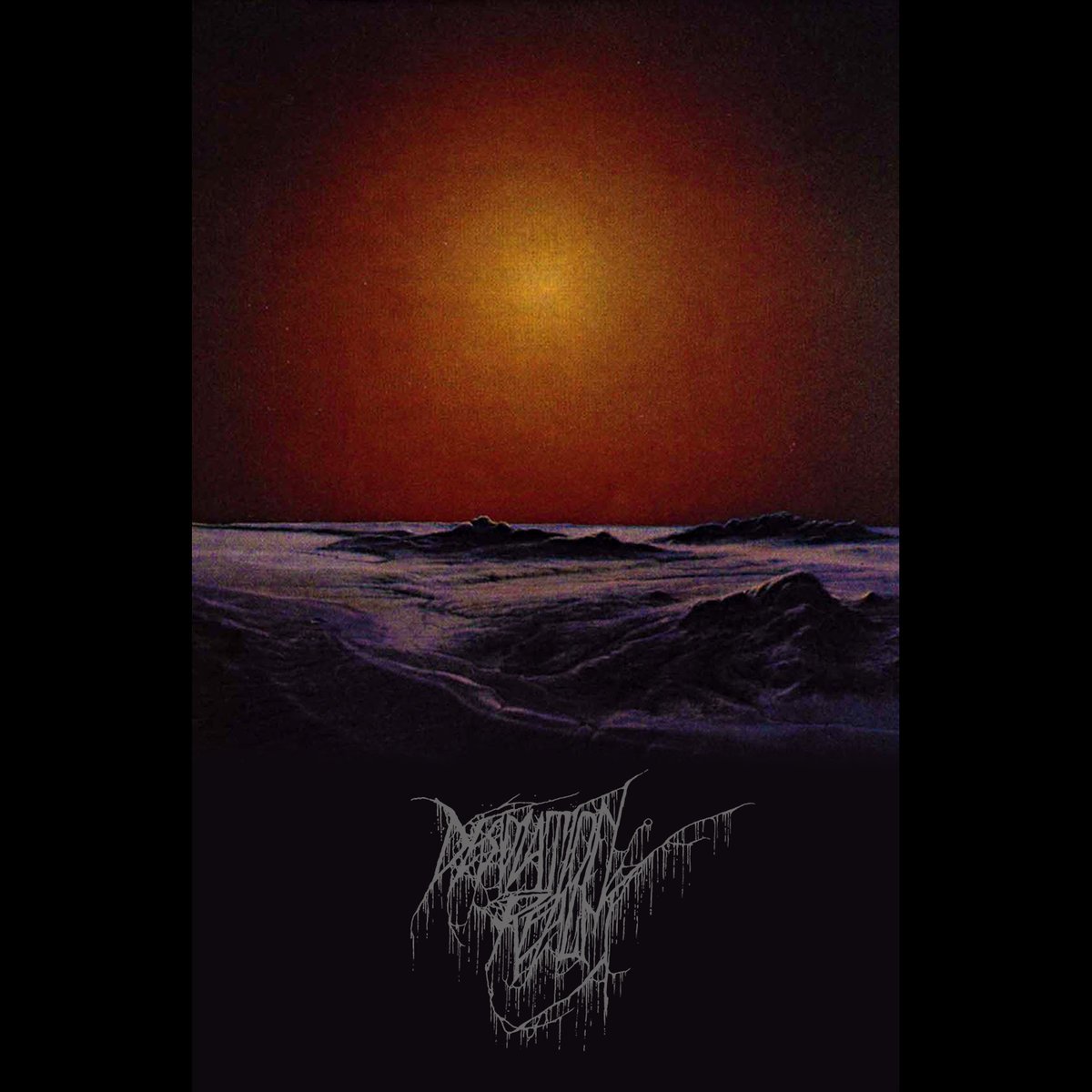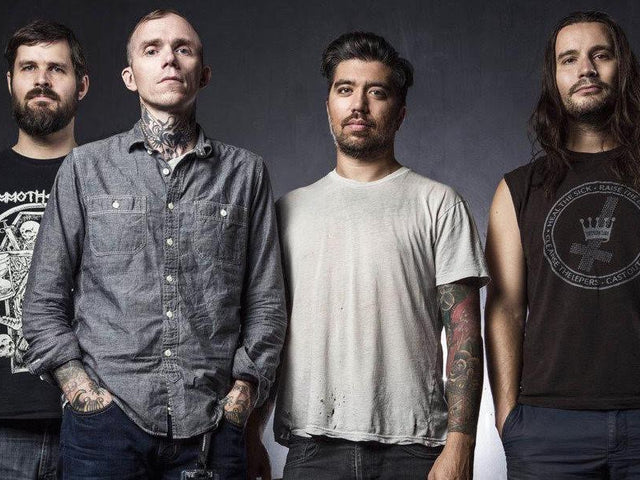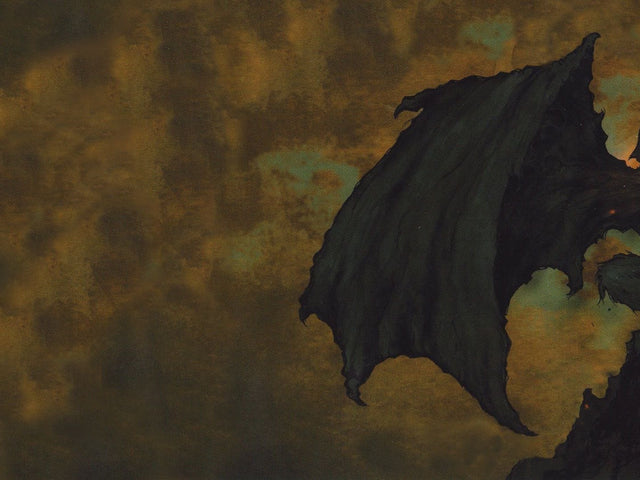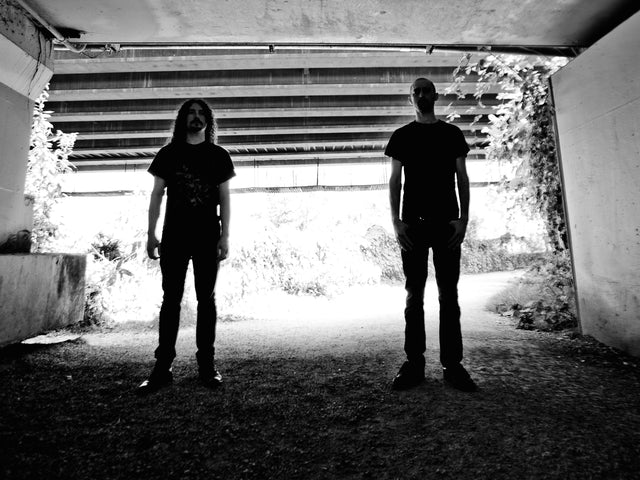When Professor Black Speaks, You Listen
And The Rest Of The Best Metal In October
Deaf Forever is our monthly metal column, where we review the best in doom, black, speed and every other metal type under the sun.

Professor Black: I Am The Rock/Sunrise/LVPVS (High Roller)
Chris Black, the headbanger supreme behind High Spirits and Dawnbringer, rang in October with not one but THREE solo records as Professor Black. No shock, then, they all kick ass and show different sides to what a songwriting behemoth he is. I Am The Rock is the most like High Spirits’ catchy Thin Lizzy worship, with a touch more Motörhead circa 1916 influence. Nobody now merges dive bar attitude and arena hooks like he does, and whether doubling down on leads or providing his own backing vocals, nobody also harmonizes with Black like Black does. His beauty in simplicity allows him to boast that he is the rock. Even the piano on “End of the Line,” more boozy Guns N’ Roses than Stooges Raw Power frenzy, is catchy because, not despite, its old-head earnestness. He makes the ’70s sound young and virile way better than that one band we were all making fun of last week. I’ve always maintained Black needs to be on some big label’s payroll as a modern Desmond Child pop-metal wizard — then again, is it so bad he’s keeping all the best stuff for himself?
Sunrise is a more solemn record, Low Spirits if you will. It’s doomy but not doom, sounding bright even when dour. How can something like “No Way Back” march toward our inevitable rot and still sound more vital and life-giving than most consciously upbeat music? Some of it could work on Dio-era Sabbath — there’s no way “Gathering Stone” isn’t a Mob Rules outtake he reworked and made his own. Sunrise is the beautiful hangover that comes after Rock’s all-night rager. LVPVS revels in Black’s proggier and krautier side with four instrumental tracks all clocking in at exactly 11:06. Black’s an engineer when it comes to extracting the most rock out of a riff, and it’s likely that having every song the same length was deliberate too. “Every Second” is a drawn-out version of Black’s trademark rock, mechanizing the joy present in High Spirits and leading it to a doomy collapse. “Habeas Corpus” also brings forth the link between black metal and prog, raging in the second half with nervous synths keeping up. Black did a stint in Nachtmystium, so this isn’t foreign territory for him.
I could have made a whole column on these three records alone, but there’s more out there. Point is: when Professor Black speaks, you listen.

Pandiscordian Necrogenesis: Outer Supernal (Gilead)
Pandiscordian Necrogenesis is one-man black metal, but literally. Every instrument is played at the same time, totally improvised, thus taking black metal’s penchant for solitude to its more absurd conclusion. This would be hokey “Black Metal BBQ” were it not the product of Steve “Ephemeral Domignostika” Peacock, the Oakland madman behind Mastery, the most extreme black metal band of all time. (I’m not kidding.) Pandiscordian Necrogenesis is not as complex as Mastery because it’s straight improvisation and he’s not doing all sorts of studio wizardry; Outer Supernal, his second record under the Pandiscordian guise, is still quite the mindfuck. The drumming is as primitive and hypnotic as you’d expect, yet Peacock’s playing is still splattered madness. “Void Supernal” escalates higher and higher as tremolos blur into taps and back into tremolo, leading into “Higher Supernal’s” drawn-out bursts that recalled the strained doom of Gorguts’ “Clouded.” “Depth Ascension” is similarly slow, yet instead of rising and falling, it’s only going deeper down. Mastery’s terror came from meticulous planning, while this terror is the chilling realization Peacock can think on his feet too.

Outre-Tombe: Nécrovortex (Temple of Mystery)
There’s maybe a handful of y’all out there who are like “Francophone death metal? FUCK YEAH,” and it’s those true warriors who I really write this column for. Quebec quartet Outre-Tombe’s second record Nécrovortex is a late-in-the-game death metal gem. It’s as good as any reliable American Autopsy/early Death/early Entombed mashup, more old school filthiness built for 2018 sound systems. Reverent as they are, Outre-Tombe have matured as songwriters here, bringing an extra dimension to their already uncompromising brutality. “L’Enfer des Tranchées” infuses a hint of Tragedy wide-scope d-beat and more frenzied soloing, adding a frenetic feeling of running from hopelessness. “Désintégration” trails off into dissonance just long enough to make the swing back into pummeling all the more neck-breaking. They get a little Dutch with “Concile Cadavérique,” taking from Asphyx’s thick, pounding boogie and early Pestilence’s death-thrash. If it only had a silly drum fill, it could be the true successor to “Out of the Body.” Even so, Nécrovortex is some of the most formidable death metal of the year.
Find 'Nécrovortex' on Bandcamp here.

Desolation Realm: Desolation Realm (Self-released)
Oslo’s Desolation Realm enter the metal consciousness with a debut self-titled EP with a space-obsessed, if not spacey, sound. This isn’t a psychedelic joyride, this is a weekender in a black hole. Divebombs slide in out of nowhere and dissipate into chaos, never with a clear ending. The beginning of “Crypts of Decay” is meaty enough for a Suffocation record, yet it’s shot out a million miles away, retaining pummel with extra alienation. Desolation Realm owe a substantial debt to Missouri death metal weirdos Timeghoul, whose two demos predicted a lot of today’s cosmic death metal. Like them, there’s busy drumming penetrating dark matter. “Sepulchral Nucleus” works with a traditional, Master-esque death metal polka, but it’s so distant and abstracted it’s far away from earthbound stomp. Had Timeghoul recorded a proper record, it would certainly sound a lot like this. And if this only their first EP, imagine what universes Desolation Realm will eventually swallow up.
Find 'Desolation Realm' on Bandcamp here.
Andy O’Connor heads SPIN’s monthly metal column, Blast Rites, and also has bylines in Pitchfork, Vice, Decibel, Texas Monthly and Bandcamp Daily, among others. He lives in Austin, Texas.
Related Articles
Join the Club!
Join Now, Starting at $44Exclusive 15% Off for Teachers, Students, Military members, Healthcare professionals & First Responders - Get Verified!







